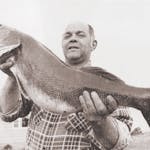The sting never went away. Not even after 40 years. But that's probably to be expected when you've been berated as a baby killer and loser who couldn't get the job done in Vietnam.
"The news media, our fellow World War II vets, VFW members, the [Department of Veterans Affairs], the military, politicians, protesters — even some family members — all turned against us," said Mark Fox, 66, of Eagan. Fox served in Vietnam.
But Fox finally found some peace in 2015 while paddling 2,320 miles down the Mississippi River with Warrior Expeditions. The nonprofit organization, founded in 2013, helps combat veterans successfully complete a long-distance hike, bike ride or paddle. Its premise is simple. "Time and space out in nature is extremely therapeutic for veterans, especially those coming back from wars," said Sean Gobin, the group's executive director. Gobin should know.
When he separated from the Marines in 2012, after three combat deployments to Iraq and Afghanistan, he and a military buddy hiked the Appalachian Trail. Hiking the trail had been a longtime dream of Gobin's. But something interesting happened while the two veterans tromped up and down a mountain range's spiny ridge.
Instead of simply having a good time and achieving an impressive goal, Gobin found the hike was helping him transition from military to civilian life. Being out in the tranquil wilderness, far away from fast-paced society, he had nothing but time to process what he had experienced. It also helped that his hiking buddy was a fellow combat veteran. His pal knew exactly what he'd gone through and was happy to talk about it at length or keep his mouth shut. There were no forced conversations in a therapist's office, shoehorned in over your lunch hour.
Once off the trail, Gobin knew he had found his calling: helping other veterans get outside. So the following year, he founded Warrior Hike (the group's original name) and invited combat veterans to hike the Appalachian Trail. Fourteen accepted the organization's inaugural challenge.
Gobin hiked with the veterans the first week to ensure they were off to a successful start. After that, the group typically hiked for a week at a time, regularly detouring into trail towns along the route. Here, local veteran organizations, hiking clubs or community members feted the warriors, providing them with hot meals and warm, comfy beds. These stops were an intentional and important part of the program, Gobin said, as many veterans return home with a cynical view of society and/or seclude themselves from the public. Continually meeting friendly folks excited to help them out can re-establish a veteran's basic faith in humanity.
Fox said the warm receptions he received every time he stepped out of his canoe were comforting and restorative.
"It was great to be welcomed by all of the groups who snubbed us 40 years ago," he said. "And so many people made a point of talking to me specifically because I was a Vietnam vet."
Seven of the 14 inaugural Warrior Hikers finished their trek, and all reported a positive experience. Even those who dropped out termed their time on the trail exceptionally rewarding. Today, a mere five years later, Warrior Hike has exploded in popularity. Now called Warrior Expeditions, the organization offers three long-distance journeys: the 2,320-mile paddle down the Mississippi River that Fox experienced; a 4,200-mile cross-country bike ride; and a hike along one of several long-distance trails (Appalachian, Arizona, Buckeye, Continental Divide, Florida, Ice Age, Mountains to Sea or Pacific Crest).
Some 400 veterans annually apply to participate in one of these treks, but the organization only has enough resources to work with about 40. So now, Gobin is developing the Veterans Outdoor Network, an online platform where veterans will be able to connect and plan their own outdoors adventure. The site will include sample gear lists, equipment discounts and instructional videos that mirror the training they'd receive on a Warrior Expeditions trip.
While it would be ideal to personally place every interested veteran on a trail, the key is getting them outside as soon as possible, said Gobin. Research shows nature is a powerful healer, and can be a long-term coping strategy for those suffering from post-traumatic stress disorder.
"That's the big takeaway of our program," he added. "Going forward, if vets are feeling stressed, they can grab their gear, head out into nature and hit the reset button."
Melanie Radzicki McManus currently is completing a thru-hike of the Superior Hiking Trail. A series on her adventure begins July 6 in Outdoors Weekend.






